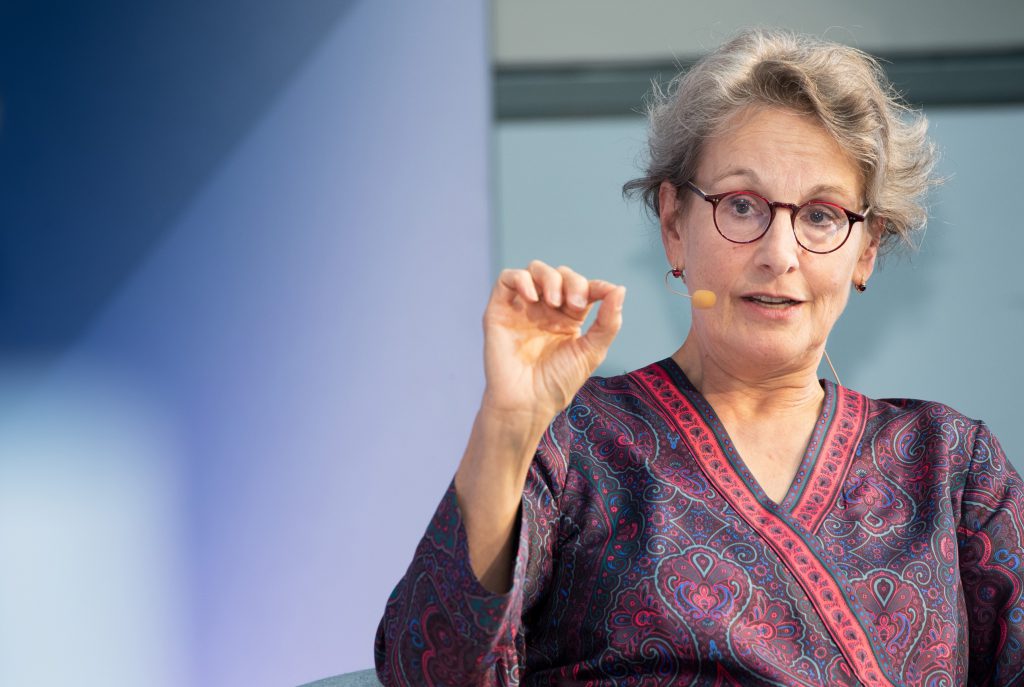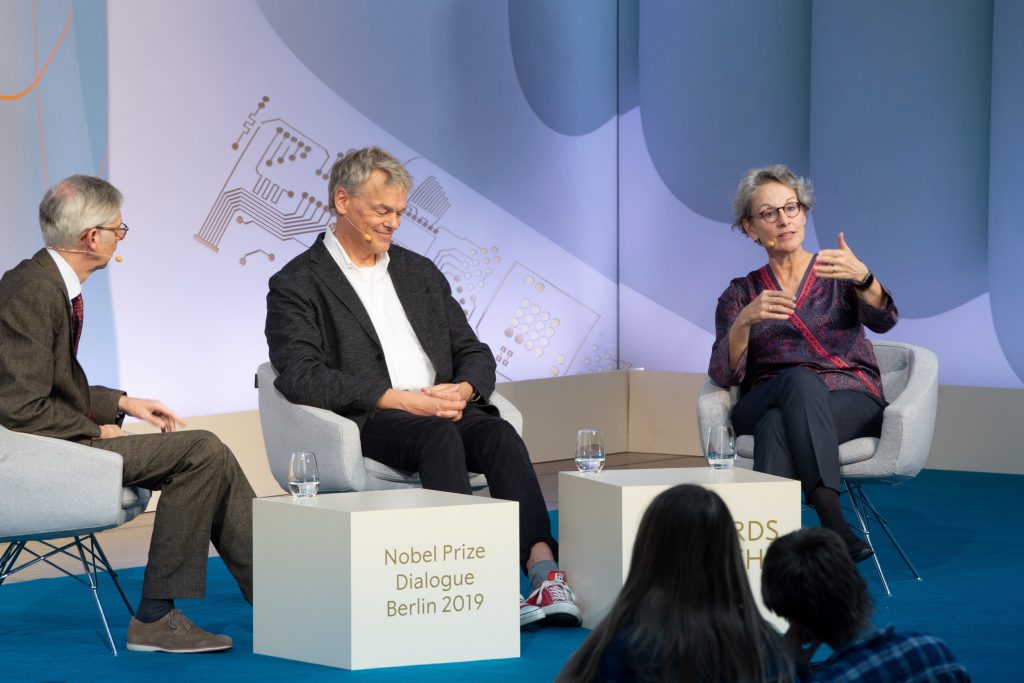Towards Health: Equality, Responsibility and Research
Nobel Prize winners, world-leading researchers, political activists, media representatives and the public got together at the Nobel Prize Dialogue in Berlin on 8 November 2019. The event focused on questions concerning health: How can we achieve healthy living and a responsible healthcare provision for everyone? How can we create and promote health education as well as healthy work and environmental conditions? And what contributions can research make to all of this?

Photo: David Ausserhofer for Leopoldina
Nobel Prize Laureates and World-leading Scientists
Together with Peter Agre and Tolu Oni, Ursula Staudinger discussed the question “What does ‘Health’ mean to you?” in the opening session. Staudinger highlighted the fact that focusing on treatment and prevention of diseases is not the flip side of strengthening health resources from the beginning of life. Moreover, she alerted the audience to the fact that health is not unidimensional but rather consists of multiple domains such as physical, functional, cognitive and emotional health. And that the sources of health are accordingly multifold including genetics, behavioral patterns and contextual as well as environmental exposures.
Importance of Physical Fitness
In her talk “Mental Health and Longer Lives: Positive Plasticity of Cognitive Aging” Staudinger emphasized that the age-related decline of cognitive functioning can indeed be attenuated. “One way to change the trajectory of the decline is to invest in your aerobic physical fitness,” she said. Thus, scientific studies have shown that with increasing levels of fitness, the brains of sixty-year-old individuals need less activity to achieve better performances just like younger brains.

Photo by David Ausserhofer for Leopoldina
In the following Q & A Session on „Mental Health, Cognition and Ageing“, Nobel laureate Edvard Moser and Ursula Staudinger answered questions of participants. Both agreed that human brains are extremely adaptable and that activity as well as exposure to novelty and challenge are key factors to prevent cognitive decline. Asked about the effects of new technologies on the trajectory of cognitive decline, Staudinger said that new technologies can be helpful to compensate for experienced decline such as the loss in memory function. Yet we need to be mindful that such support does not create disuse where use is still possible. Therefore, it is crucial for education in the 21st century to convey digital competence in the sense of becoming “masters of the toys and the information they provide”. Both scientists showed great optimism about healthy aging. Yet they also pointed to hazards such as air pollution that might put a stop to the positive trend.
Watch the live stream:
About the Event
The event has traditionally taken place during the week of the Nobel Prize Award Ceremony since 2012 and was now held in Germany for the first time. Bridging science and society, the Nobel Prize Dialogue inspires and honors human ingenuity, research and collaborative, creative thinking.
